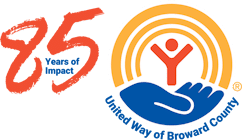Every year, on the first Monday of September, we celebrate Labor Day. But what is Labor Day besides the last day of summer or the last day you can wear white?
Labor Day is a day to celebrate and commemorate the Labor Movement, which is “essentially” all efforts taken by workers throughout American history to establish labor laws, regulation, employee benefits and protections often taken for granted, such as weekends, 40-hour work weeks, overtime pay, health or retirement benefits, child labor laws and much more.
This process was not a smooth one, however – blood, sweat and tears were spilled in the fight for workers’ rights. We can see this in the Haymarket Riot of 1886, the Pullman Strike of 1894 or when 10,000 workers decided to take unpaid time off to walk across New York City and celebrate their first Labor Day in 1882.
The Labor Movement itself began in the 1800s and still continues to this day – working to ensure workers have benefits, fair treatment, safe working conditions, compensation for their work, as well as a voice at the table when decisions are being made regarding their well-being. It’s an imperfect situation with a past in failures, successes, violence and controversy..png) I’ll share a personal story from my family’s history: My great-grandfather, Patrick, was born in Sligo, Ireland, in 1887 and moved to New York City in 1910 at the age of 23. In 1880, the United States’ typical work day was around 12 hours. Workers could be as young as 5; and there was no paid overtime, no sick days, no vacation time, minimal or no safety regulations, and a 6- or 7-day work week was normal. By 1910, very little had changed.
I’ll share a personal story from my family’s history: My great-grandfather, Patrick, was born in Sligo, Ireland, in 1887 and moved to New York City in 1910 at the age of 23. In 1880, the United States’ typical work day was around 12 hours. Workers could be as young as 5; and there was no paid overtime, no sick days, no vacation time, minimal or no safety regulations, and a 6- or 7-day work week was normal. By 1910, very little had changed.
Upon being employed as a steam engineer working in the Metropolitan New York City Area. Patrick immediately became an activist with the Local International Union of Operating Steam Engineers (today a trade union within the AFL-CIO, and have dropped “Steam” from their name, once steam engines became mostly obsolete). The union, in 1910, was having difficulty making progress and those thought to be meeting to discuss giving workers bargaining power risked being blackballed from ever being employed as an engineer in the city. This was a relatively common practice at the time, and if an employer was able to find union membership or meeting lists, the names could be put on a “Do Not Hire” list distributed among employers to ensure organizers were not able to build consensus among workers on having bargaining rights with the corporate leadership. Because of this, my great-grandfather, and my grandfather after him, did not keep paper records for very long, and often destroyed the lists, as was necessary to ensure employment of themselves and their colleagues.
If employers suspected union influence was growing, sometimes they would hire strikebreakers or goons to threaten or harm union members or their families to discourage their activism (my own grandmother and her family had to move out of the city because of this). Local officials were able to leverage federal injunctions against unions by using the Sherman Anti-Trust Act to fight labor disputes as “restricting commerce.”
My great-grandfather fought until 1929 when he passed away at the age of 42. He unfortunately did not get to see a substantial law become passed in his lifetime, the Norris-LaGuardia Act of 1932, which banned Yellow Dog controls – forcing workers to sign away their union rights, in order to be employed – and limited the powers of federal injunctions against unions during labor disputes. The National Labor Relations Act of 1935 required employers to bargain with unions.
My grandfather, Peter, continued to fight well into the ‘40s, ‘50s and ‘60s and witnessed continued blackballing of union members, threats, violence. The fight continued, and still continues today.
The very things American workers and members of my family have fought for are what this holiday celebrates as these rights weren’t always granted. Here at United Way of Broward County, we honor this important day as we know from our ALICE families that being Asset Limited, Income Constrained, and Employed means they don’t always have access to benefits in the workforce and the fight for equity for the working class must continue. This Labor Day, we salute all the workers, and offer a thank you to the AFL-CIO and its federation of unions and the workers within for supporting United Way of Broward County and our community.
Hear Brandon’s story firsthand by clicking here.
© 2023 United Way of Broward County | 1300 South Andrews Avenue, Fort Lauderdale, FL 33316 | 954.462.4850 A copy of the official registration and financial information may be obtained from the division of consumer services by calling 1-800-435-7352 within the state. Our Registration number is CH536. Registration does not imply endorsement, approval, or recommendation by the state. UWBC does not use paid solicitations and 100% of each contribution is received by UWBC.

